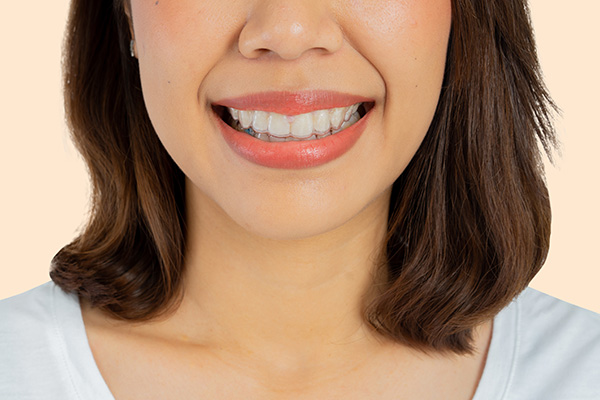 Invisalign® allows people to straighten their teeth without needing the metal brackets and wires with conventional braces. Invisalign trays are transparent and almost undetectable on the teeth. However, what exactly are those trays composed of? Continue reading to discover more about how the trays' material and design move your teeth around.
Invisalign® allows people to straighten their teeth without needing the metal brackets and wires with conventional braces. Invisalign trays are transparent and almost undetectable on the teeth. However, what exactly are those trays composed of? Continue reading to discover more about how the trays' material and design move your teeth around.
What are Invisalign aligners made of?
Invisalign clear aligners, often known as Invisalign braces, are transparent trays composed of a plastic substance. Over the last few years, Invisalign has grown in popularity, and it is currently one of the most popular teeth straightening options available from the dentist. The benefit of clear aligner therapy is that it enables patients to correct mild to moderate malocclusions discreetly, which makes it perfect for people who might be uncomfortable with the appearance of traditional metal braces.
The custom-made Invisalign trays are made of SmartTrack, a proprietary thermoplastic material known as polyurethane resins. These resins are a mixture that is exclusive to Invisalign. The substance is comparable to plastic; however, it was created especially to assist in the gradual shifting of teeth. They have a high molecular weight and are of medical quality.
One of the most important aspects of Invisalign's success is the SmartTrack material. The material is transparent, allowing the natural teeth to show through, so the aligners are hard to notice. Furthermore, the material used in Invisalign aligners is robust, long-lasting, and effective in progressively straightening teeth.
This material is biocompatible and powerful enough to move teeth gradually with concentrated pressure, yet it is also pleasant enough to wear without discomfort. Plus, since this material is transparent, patients can talk and smile with confidence during their treatment.
How Invisalign aligners are made
The dentist will take x-rays and digital scans of the patient's teeth to begin the treatment and to determine the best orthodontic option to align the teeth. This information is then forwarded to the Invisalign lab, where the aligners will be custom-made based on the treatment plan's exact requirements.
The aligners are sent directly to the patient or the dentist's office after the production process is complete. Patients can start the Invisalign treatment once they receive their aligners. Invisalign is often more pleasant than fixed metal brackets and wires because they fit the teeth precisely at each step of the process.
Eligibility for Invisalign
Invisalign clear aligners may help many people. The only way to determine whether this is a viable option is to meet with a dentist to discuss treatment options. Invisalign may typically correct crowded teeth, gapped teeth, as well as overbite, underbite, and crossbite.
Ready for a straighter smile?
There is never a bad time to get straighter teeth and a more beautiful smile. If you have misaligned teeth, do not put off finding out whether you are a candidate for Invisalign treatment. Contact our dental office to book a consultation appointment and get started right away.
Request an appointment or call Mission Valley Dental Arts at 619-805-4248 for an appointment in our San Diego office.
Related Posts
Invisalign® clear aligners can fix a range of tooth alignment issues, including bite problems. This clear aligner system has given people of all ages straighter smiles discreetly and conveniently for years. However, many wonder if Invisalign is as effective at correcting issues such as overbites and underbites. Here is an overview of how Invisalign addresses…
Invisalign® can help correct your smile and improve your dental health. Your dentist will check your dental structures first. This determines if you are a good candidate for this dental straightening treatment. Here are the details about when your dentist would recommend Invisalign.Dentists would recommend traditional braces for severe dental crookedness. But for mild cases,…
If you want to align your teeth discreetly, you have probably noticed the many options at your disposal, two being Invisalign® and lingual braces. While both options share some similarities, they also have significant differences for you to consider.One of the most significant differences between the two appliances is appearance. Invisaline is virtually invisible, using…






